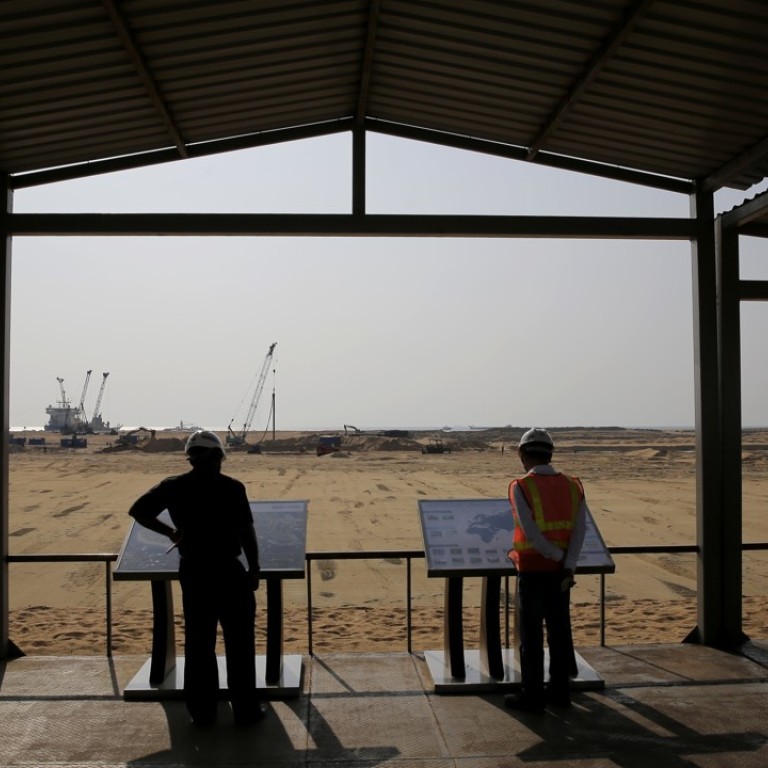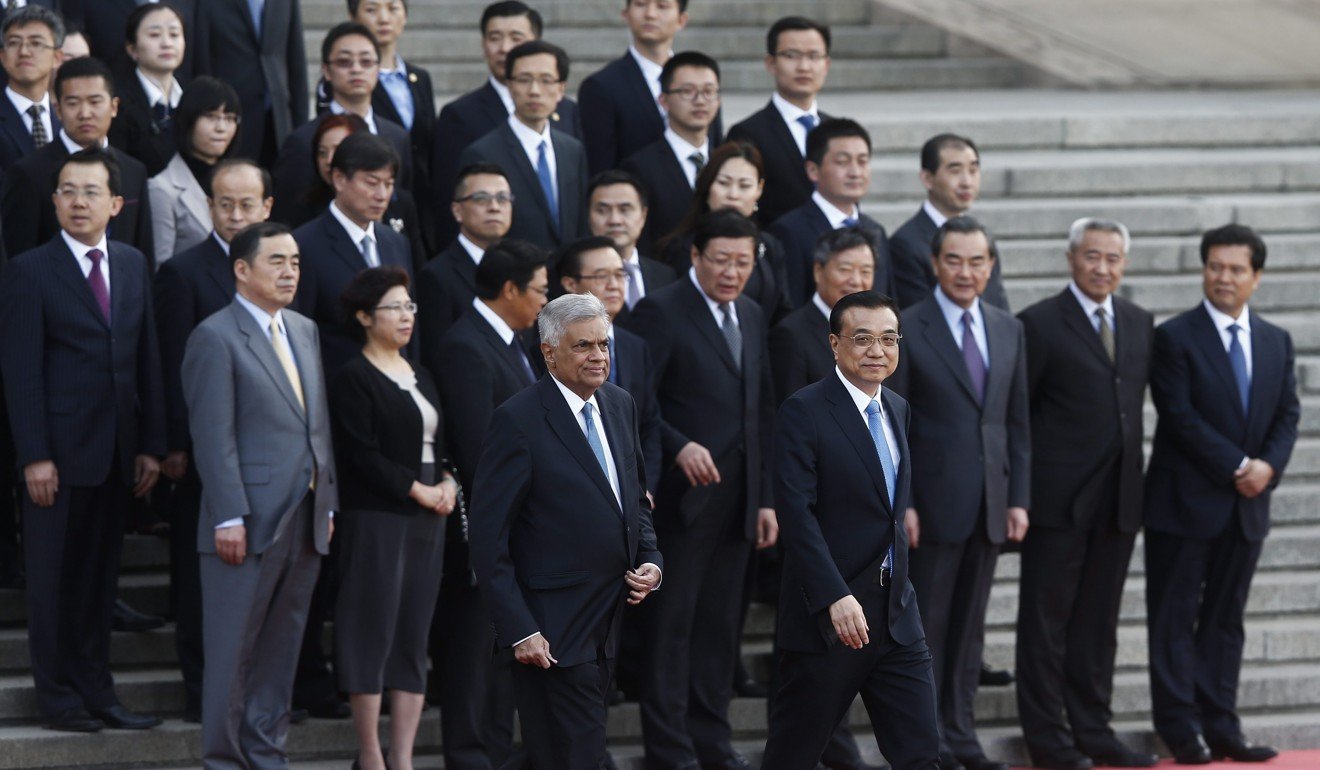Advertisement
Advertisement

China's role in Sri Lankan development sparks fears over sovereignty, local economy
Freddie Kleiner says China’s increasing role in Sri Lanka’s development – including its major Port City Colombo plans – has some asking whether Beijing’s growing influence threatens the nation’s sovereignty
Port City Colombo, financed by China, promises to be a game-changer for Sri Lanka, and the government hopes its development will help them to become a trading hub between Europe, Africa, the Middle East and Asia.
The port will also be a finance centre accessing the Indian subcontinent’s rapidly developing markets, hopefully attracting overseas investors and increasing employment. Colombo officials anticipate the port generating massive amounts of foreign investment in the next 25 years.
Sri Lanka’s location once made it a centre for East-West commerce. Those links are being revived, with Beijing counting on Sri Lanka to be central in the “Belt and Road Initiative”, the development of Eurasian transport infrastructure and trading routes along the old silk roads.
Last December, Sri Lanka handed Hambantota Port to China. A joint venture between state-controlled China Merchants Port Holdings and the Sri Lanka Ports Authority owns the leasehold for the port and 15,000 acres of adjacent land. The deal, in which the Chinese partner holds a 70 per cent stake, has been criticised for undermining Sri Lankan sovereignty.

Belt and road, or a Chinese dream for the return of tributary states? Sri Lanka offers a cautionary tale
Sri Lankan President Maithripala Sirisena is trying to address the concerns this has sparked over sovereignty by expanding commercial ties with other countries. Talks on free trade agreements with China and Malaysia are under way, while Singapore Prime Minister Lee Hsien Loong is expected to conclude a trade deal in January. The Economic and Technology Cooperation Agreement, seeking to expand Sri Lanka’s trade agreement with India, could to be finalised by June.
While Colombo hopes these agreements can stimulate investment and let its tea and textiles exports boom, some fear the country may lose out to foreign business.
China’s clout grows in South Asia, but can India raise its game?
But, right now, the focus of anxiety is Port City Colombo. Construction is set to generate tens of thousands of jobs, and the foreign finance it attracts is seen as crucial to reducing the country’s US$64.9 billion debt burden. Yet critics argue the port may undermine sovereignty and do little to help local business prosper. The government knows winning the argument is not only central to the success of this development, but may determine the limits of future Chinese investment.
Freddie Kleiner is an analyst at Alaco, a London-based business intelligence consultancy
This article appeared in the South China Morning Post print edition as: Worries build in Sri Lanka

Post